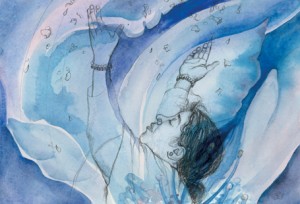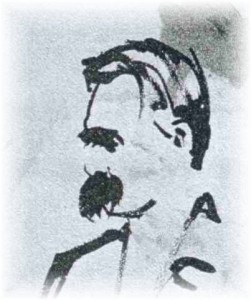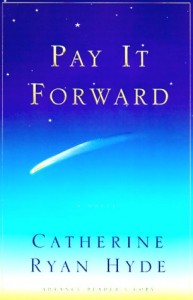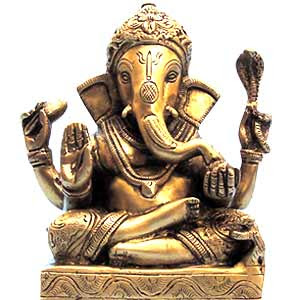Step Two: Came to believe that a Power greater than ourselves could restore us to sanity.
Last week we talked about what a sane writer looks like. This week, we’ll talk about how my life would look if I were restored to sanity. Yeah, big “what if” there, step two is all about hope.
One of the best Step Two exercises I ever did was to write down how my creative life would look, if there was a loving God in heaven actively working in my life.
Now, I have trouble with God, loving or not, and so I like to think of it as some Divine Force. That’s the language I use below.
 However, if you’re not a God person at all (I adore atheists), then you can do the what if thing. What if I were a sane writer, what would my troubles look like?
However, if you’re not a God person at all (I adore atheists), then you can do the what if thing. What if I were a sane writer, what would my troubles look like?
I pulled the list of troubles below from a talk I give, From Whining to Writing: Courageously Creating and Overcoming the Odds. I think it’s a good list of whines.
But what would the whining look like if I weren’t alone?
Fear of Success – If there was a Divine Force actively working in my life, I would work with a spirit of service. Books can change lives. I would write in that spirit and any success would be icing on the cake.
Fear of Failure – If there was a Divine Force actively working in my life, I would only be failing if I didn’t try. The simple act of writing is the reward, and yes, I might fail in a larger sense, but I’m not writing for me. I’m writing to make the world a better place. I’m writing to touch people, entertain people, make their lives better through the ancient, sacred act of storytelling.
I don’t have time to write – If there was a Divine Force actively working in my life, time would open up when I least expected it. I would be aware of my schedule, and look for ways where I could fit in writing. I would have faith that things would get done even if I steal a little time to write. Though I would have to keep an open mind that the writing time I get probably won’t be perfect.
Self-doubt – If there was a Divine Force actively working in my life, I would trust that the deep part of myself knows what to write, knows what story I need to tell. If I have the desire to write, I must keep in mind that that is a gift, and I have been selected to bear witness to reality, or my own twisted perception of reality.
Critical voices – If there was a Divine Force actively working in my life, I would be given the intuitive knowledge of when to listen to the voices to improve my craft and improve my story. But then, I would also know when to ignore the voices and write like Hemingway on meth. Critiques are like diamonds in a field of manure. You have to go through a lot of crap to find the diamonds, but the diamonds are worth it. I would listen with my true heart. A good critique will stick in your craw.
Grandiose Thinking– If there was a Divine Force actively working in my life, I would write with humility. I might not become rich and famous, I might not have perfectly clean prose, as crisp as an apple, but what I have will be mine, my own vision of my story, my characters, and how I think life works.
Perfectionism – If there was a Divine Force actively working in my life, I would know I’m not perfect, what I write doesn’t need to be perfect, and I am here to do the very best I can. I can aim at perfect, but if I fall short, that’s okay. That’s why we have editors and critique groups.
Thinking too small – If there was a Divine Force actively working in my life, I would write with courage because there is a Divine Force who knows what kind of story I need to tell, and what kind of story the people around me need to read. I can be daring. I can write huge, fat novels of truth and meaning, because I’m not alone. God is my co-writer.
Nothing Feels Right – I’m Not Inspired – If there was a Divine Force actively working in my life, I would rely on that Divine Force to inspire me during my writing time. Even when every word I type seems stupid, cliché, and stupider, I would continue to write because sometimes I don’t know if what I am writing is stupid, or genius. From the wisdom of Spinal Tap, there is a fine line between stupid and uh, clever.
Envy – If there was a Divine Force actively working in my life, I would keep my eyes on my own page. My writer’s journey isn’t about you, it’s about me. And I would have the wisdom to celebrate all victories, mine, yours, Stephenie Meyer’s. When one writer wins, we all win, because in the end, we are an enslaved race of scribblers and if one person gets freedom, well, God bless them. The Divine would help me remember that.
Too Hard, Why Even Try? – If there was a Divine Force actively working in my life, I would rely on that force to help me through the despair. If I have the drive to turn my back on television, familial responsibilities, and a lucrative job selling insurance in order to write, then I need to trust there is a reason, a purpose, for my writing. And for me to ignore that purpose, well, that would be a crime against my own nature and against God.
So that’s what sanity would look like in my writing life. Am I there yet? No, but that is the ideal.
 Next week, we’ll finish up Step Two. Or at lesat try to.
Next week, we’ll finish up Step Two. Or at lesat try to.
 A lot of people say that the principle behind the 2nd step is hope, and I think that’s right. We hope that we can be restored to sanity, that we can live at peace with ourselves and with our writing. Yes, a lot of writers become very successful and they fight and spit and growl through the process, but that’s not my ideal. And again, I say, if I can write and handle the writing game sanely, everyone wins. I win, my critique group wins, my family wins, everyone.
A lot of people say that the principle behind the 2nd step is hope, and I think that’s right. We hope that we can be restored to sanity, that we can live at peace with ourselves and with our writing. Yes, a lot of writers become very successful and they fight and spit and growl through the process, but that’s not my ideal. And again, I say, if I can write and handle the writing game sanely, everyone wins. I win, my critique group wins, my family wins, everyone.





